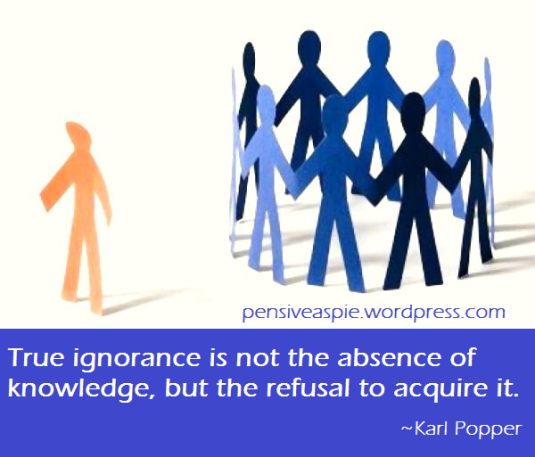Autism only occurs in children. Because it is a childhood disorder, as an autistic child leaves adolescence behind, the symptoms of their autism will gradually decrease and disappear. By the time the person is an adult, they will be completely Autism-free. They will have no need for speech or physical therapy. No need for mental health services. They will be fully functioning adults – ready to get a job, go to college and begin their new life without autism.
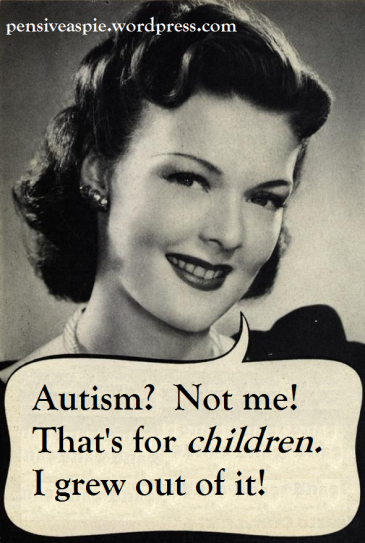
Of course this is ABSOLUTELY, 100% NOT TRUE, but this is something I am told every day by the media and organizations that claim to “support Autism.”
When I first suspected I had Asperger’s, I immediately began looking for more information about a diagnosis and support. A google search of Autism and Jacksonville, FL was hopeful. So many resources! CARD (Center for Autism and Related Disabilities). The HEAL (Healing Every Autistic Life) Foundation. Jacksonville School for Autism. The Learning Tree. There is even an annual Autism Symposium every year!! Surely I hit the Autism Support Jackpot, right?
Wrong.
The Autism Symposium was laughable. The folder they gave us talked about the speakers and their massive qualifications, but the packet contained nothing useful for a person WITH autism. When I asked the woman in charge if she knew of any resources for adults, she looked at me as if I had just asked if I could pull an alien out of my eyeball. She actually said “Did you Google it?” *Sigh*. Thanks for that illuminating advice, princess.
Although this was an “Autism Symposium”, they didn’t list any kind of resources at all. The speakers spoke at a collegiate level about the genetic makeup and studies being done to identify the “autism gene.” They spent HOURS focusing on ‘what CAUSES Autism’ at the genetic level (eyeroll). Another “how can we cure ‘em” symposium. I didn’t care what *causes* Autism. I wanted to know what to do with it. I wanted to know more about it but not on a cellular level. The lights were too bright. The speakers were too loud. For an “Autism” symposium, it was NOT sensory-friendly. Every person at my table was disappointed with the lack of useful information given.
I kept trying. I called the places from my Google search. Each place only works with children. Each place I called referred me to the next because they did not know of any services offered to adults. Referral after referral led me on a wild goose chase until the circle was complete. They were all referring me to each other – each apparently unaware of the services the other was offering. It was disappointing and disheartening.
I asked “What happens to kids after they turn 18?”
“They age out of the system.”
So… they DON’T need services anymore? They’re somehow amazingly cured?
No. They are just denied help.
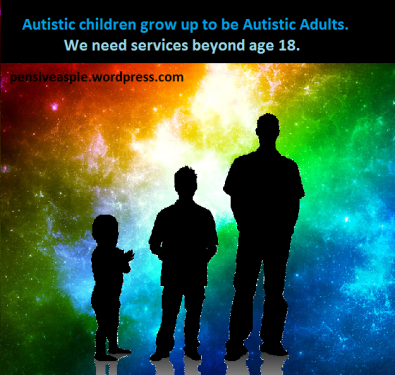
They are denied help at a time in their life when they need help the most. At 18 yrs old, children are graduating high school and getting ready for college. They are transitioning from dependent to independent living for the first time in their lives. They might be going to college – away from friends, family, and their support system. I cannot think of a worse time to rip their mental health services away.
After failing to find an “autistic support organization” that helped Autistic adults, I tried psychologists. Even though I have very good insurance, I was once again told “We only work with CHILDREN with autism.” Or “We don’t accept insurance. You would have to pay out-of-pocket” (at the cost of at least $100 an hour.)
If I couldn’t get a psychologist to speak to me with my Blue Cross insurance, how will my autistic brothers and sisters get help? According to the US News and World Report, over 50% of people with autism are unemployed. FIFTY percent. They are most likely on disability. They probably have Medicaid for their health insurance. If psychologists aren’t taking Blue Cross, you know they aren’t taking Medicaid.
So what happens when Autistic kids turn into Autistic adults?
Nothing.
Absolutely nothing.
No support. No services. No autistic organization reaching out with social skills/employment skills.
Nothing.
What really chaps my hide is that so many of these kids are brilliant. They could flourish in college and excel in the real world if it weren’t for their social anxieties. Instead, they often can’t handle it. They feel much safer at home, surrounded by friends and family. They drop out. They remain dependent. They may end up on disability and Medicaid instead of learning the social skills they need to function in the working world. Instead of graduating college, our autistic young adult college drop-out is probably going to be on disability for the rest of his/her life (60 more years) because there were NO services to help him/her transition into independent living. At the rate of $721 per month, It would cost over $500,000 to pay disability for 60 years. Surely it wouldn’t cost 1/10 of that to provide mental health services.
I was lucky. I found another woman with Asperger’s who was a counselor. Insurance was not accepted, so I had to pay the $40 a session out of pocket. Thankfully, I was able to afford it for a short while. She helped me understand how Asperger’s affects me and those around me. She pointed me in the right direction. I learned most of what I know about Asperger’s through the internet from Google searches and online support groups. (Thank you Facebook.)
Unfortunately, online is NOT enough. Aspies struggle with interpersonal communication. Although it is EASIER to communicate from behind the monitor, it doesn’t teach us the skills necessary to speak to others in person. It doesn’t teach customer service. It doesn’t help us with the dreaded eye contact. It doesn’t teach us to function in the real world.
We need more.
Autistic kids grow up to be autistic adults and we are failing them.
So what am I doing about it?
I have emailed ASAN (Autistic Self Advocacy Network) to start a chapter here in North Florida.
I am going back to school this fall as soon as I figure out which degree would help me reach my goal of being able to provide counseling to other autistic individuals: A Master’s in Social Work or a Master’s in Psychology. I already have my Bachelor’s in Nursing. I’m doing my research on this now.
What about you? 🙂

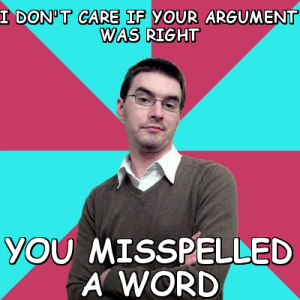
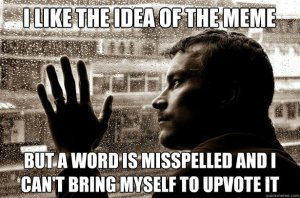


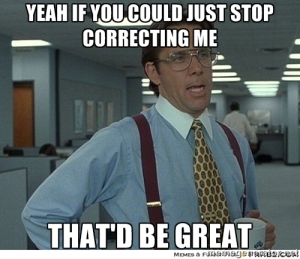
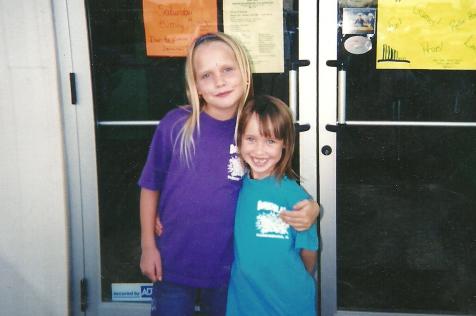
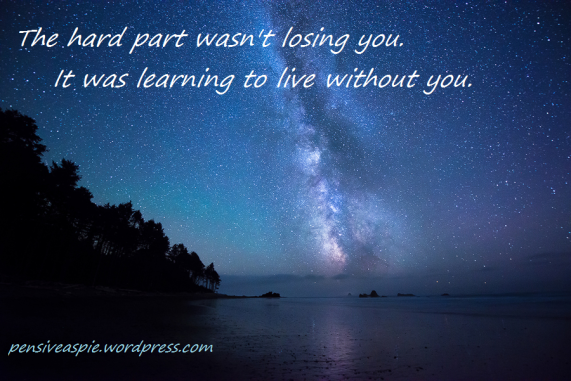
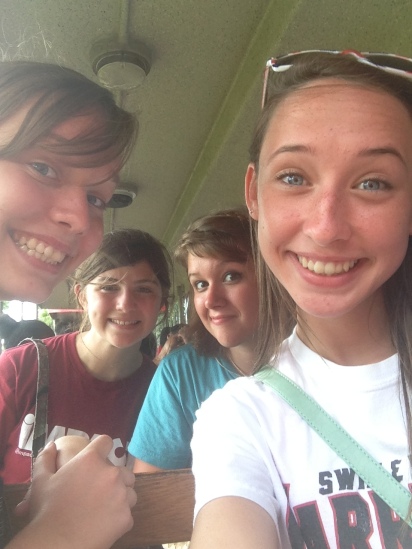

![IMG_20140729_150324382_HDR[1]](https://pensiveaspie.files.wordpress.com/2014/09/img_20140729_150324382_hdr1.jpg?w=188&h=336)
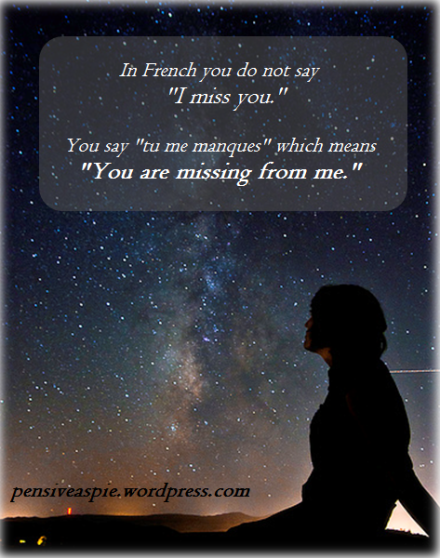

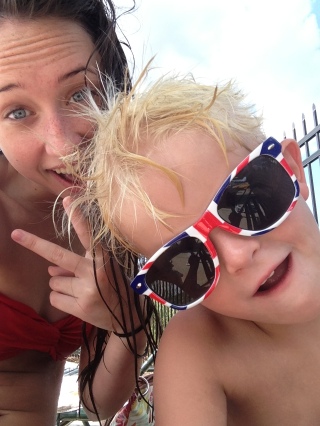
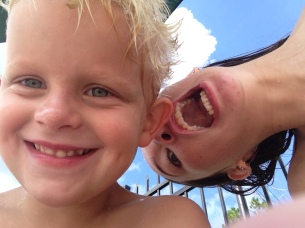
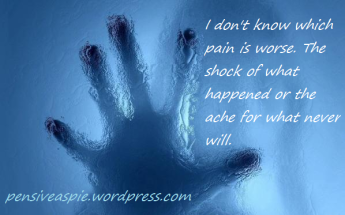
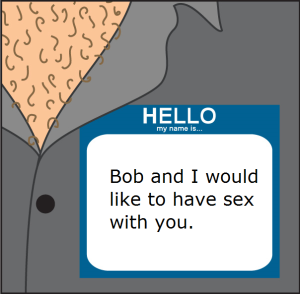
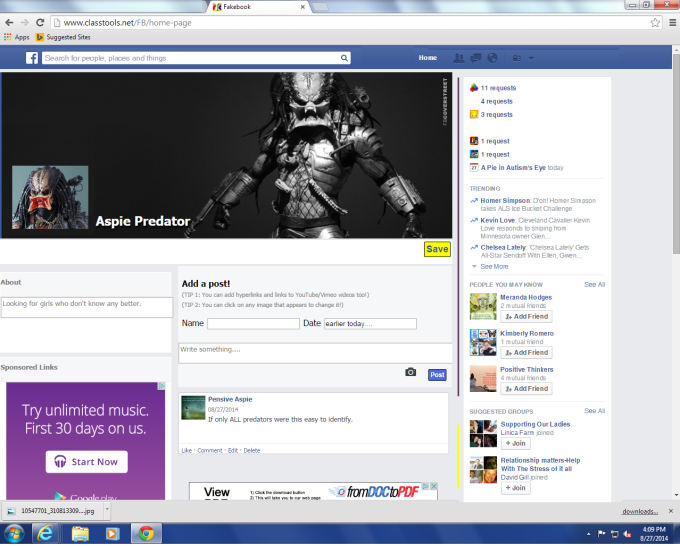
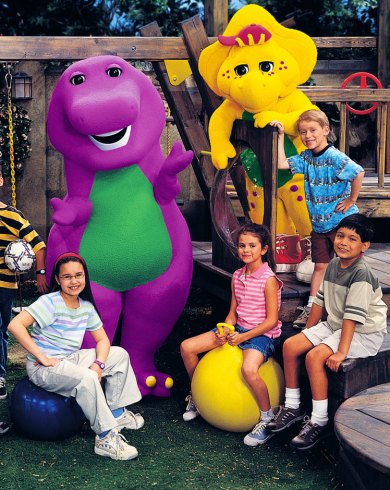
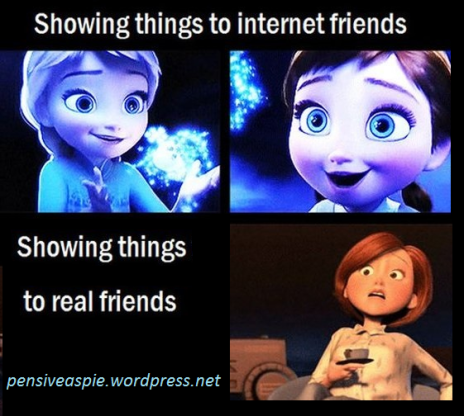



 What’s even worse is that many people appear to agree. This past week I saw many people on social media sharing the story about an adult man who was frustrated in Burger King. If you believe his story, the man was in line in front of a mother and her son. His story claims that the boy was repeatedly screaming that he wanted some “F-ing Pie.” When it was his turn to order, the man decided he would buy all 23 pies so the child could not have one. The writer (who has removed his post) claims: “Moments later I hear the woman yelling, what do you mean you don’t have any pies left, who bought them all? I turn around and see the cashier pointing me out with the woman shooting me a death glare. I stand there and pull out a pie and slowly start eating eat as I stare back at her. She starts running towards me but can’t get to me because of other lineups in the food court. I turn and slowly walk away.”
What’s even worse is that many people appear to agree. This past week I saw many people on social media sharing the story about an adult man who was frustrated in Burger King. If you believe his story, the man was in line in front of a mother and her son. His story claims that the boy was repeatedly screaming that he wanted some “F-ing Pie.” When it was his turn to order, the man decided he would buy all 23 pies so the child could not have one. The writer (who has removed his post) claims: “Moments later I hear the woman yelling, what do you mean you don’t have any pies left, who bought them all? I turn around and see the cashier pointing me out with the woman shooting me a death glare. I stand there and pull out a pie and slowly start eating eat as I stare back at her. She starts running towards me but can’t get to me because of other lineups in the food court. I turn and slowly walk away.” 



